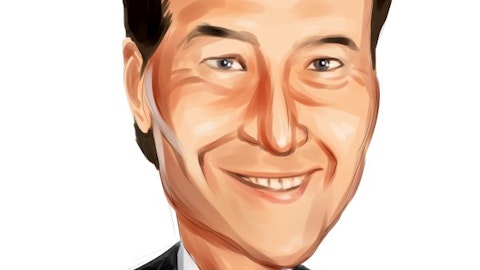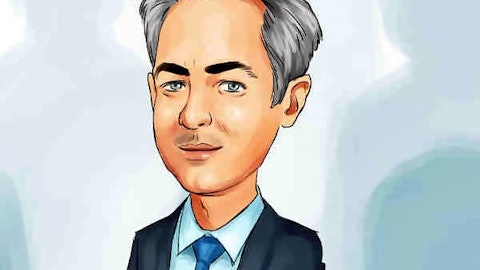There is currently a debate raging on about whether or not activist shareholders are good for business. Several studies or investigations have concluded that activist targets are more likely to beat their industry peers rather than underperform. Of course, there are some short-term focused activist firms that do not necessarily improve companies’ businesses for a long-term horizon, so this type of activism can be worrisome to long-term shareholders. However, long-term oriented activists, like Carl Icahn, generally push for changes that greatly improve certain companies’ businesses and operational efficiency for a long time, which in turn results in indisputable long-term outperformance. Feared activist Icahn once said that “even more telling is the annualized return of a person who invested in 23 companies whose Boards Icahn designees joined between January 1 2009 and June 30 2014: if the person invested in each company on the date that the designee joined the Board and sold on the date that the Icahn designee left the Board (or continued to hold through June 30, 2014 if the designee did not leave the Board) they would have obtained an annualized return of 27%”. Therefore, one should focus on long-term oriented activists and ignore “hit-and-run” activists in order to build a strong-performing portfolio. With that in mind, this article will discuss three 13D (activist) filings that were submitted by several hedge funds tracked by Insider Monkey, including one from Icahn himself.
Following activist funds like Icahn Enterprises is important because it is a very specific and focused strategy in which the investor doesn’t have to wait for catalysts to realize gains in the holding. A fund like Icahn Enterprises can simply create its own catalysts by pushing for them through negotiations with the company’s management and directors. In recent years, the average returns of activists’ hedge funds has been much higher than the returns of an average hedge fund. Furthermore, we believe do-it-yourself investors have an advantage over activist hedge fund investors because they don’t have to pay 2% of their assets and 20% of their gains every year to compensate hedge fund managers. We have found through extensive research that the top small-cap picks of hedge funds are also capable of generating high returns and built a system around this premise. In the 38 months since our small-cap strategy was launched it has returned over 102% and beaten the S&P 500 ETF (SPY) by more than 53 percentage points (read more details). Soon, we’ll be releasing a new quarterly newsletter written by former activist hedge fund analyst Michael Bland that tracks ten or so activist campaigns at any given time.
In a freshly-amended 13D filing, Carl Icahn of Icahn Enterprises reported owning 63.71 million shares of Hertz Global Holdings Inc. (NYSE:HTZ), which account for 14.34% of the company’s outstanding common stock. This compares with the 51.92 million-share stake revealed in Icahn’s 13F filing for the September quarter. This is another example of the Icahn Effect, as the shares of Hertz have advanced by more than 3% in today’s pre-market trading session on the news. The rental company faced major accounting issues last year, after its Audit Committee found material misstatements in its financial statements for 2011, 2012, and 2013. These accounting issues and other minor accounting errors have slightly impacted the company’s financials in recent years. Meanwhile, Hertz Global Holdings Inc. (NYSE:HTZ) reported total revenue of $8.12 billion for the nine-month period that ended September 30, compared to $8.49 billion reported for the same period of last year. The decrease was mainly attributable to lower off-airport volume, as a result of store closures in the second quarter and lower rental rates due to fast-increasing competition in the industry. The rental company’s recently-completed fleet refresh and its ongoing efforts to reduce operating costs might enable the company to deliver stronger financial results in the upcoming years.
In the meantime, Hertz shares are down by 45% in 2015, so it remains to be seen whether the company’s management can achieve the much-needed turnaround in the years ahead. A total of 54 hedge funds from our database were invested in the company at the end of the September, compared with 67 at the end of June. Similarly, the value of their investments declined to $3.48 billion from $4.06 billion quarter-over-quarter. These hedge fund vehicles had still amassed 45.40% of Hertz’s outstanding common stock as of September 30 however. Aside from Icahn, billionaire Barry Rosenstein of JANA Partners is another major shareholder of Hertz Global Holdings Inc. (NYSE:HTZ), holding 39.19 million shares as of September 30.
Follow Carl C. Icahn's Icahn Capital LP
Let’s now move on to the next page of this article, where we discuss Whitebox Advisors’ filing in connecton with a diversified energy company and Carlson Capital’s position in a real estate and oil and gas company.





